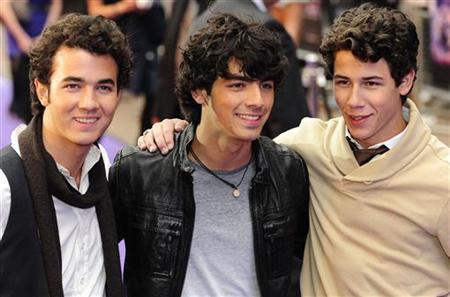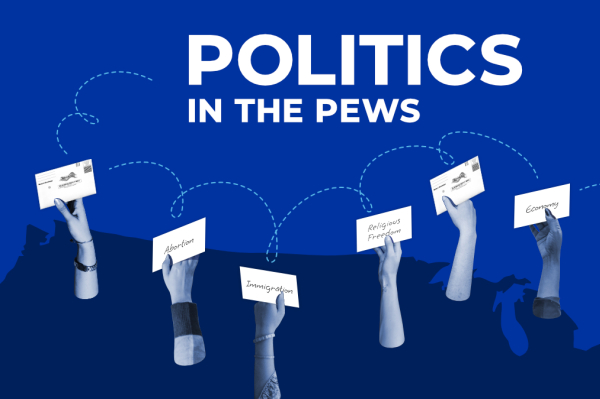Jonas brothers discuss purity rings, slam media for inappropriate fascination with teens' sex lives

The Jonas brothers have expressed regret over being known for the purity rings they wore for several years but criticized the media for its inappropriate fascination with the sex lives of teenagers.
At the peak of their career a decade ago, Kevin, Joe, and Nick Jonas, who comprise the Jonas Brothers, made headlines by wearing purity rings — the popular evangelical symbol of abstinence before marriage. Then in their teens, the trio wore them everywhere: on red carpets, in their music videos, and at their concerts.
But after breaking up and reuniting six years later, the brothers, now all married and in their 20s, are speaking out about the media storm surrounding their vows of abstinence.
“The very simple answer is that it was incredibly annoying,” Nick told Harpers Bazaar of the media’s obsession with the brothers' abstinence.
“And then it became a defining factor of who we were as a band, which was disappointing. I was just trying to navigate love, and romance, and what sex even meant to me, at a sensitive age.”
Nick argued that the question should have been: Is it appropriate for people to talk about a 16-year-old’s sex life?
“It’s absolutely not — and it wouldn’t necessarily fly today,” he asserted.
Still, Nick said he understands why the purity rings were such a topic of conversation, given the teen idol status of the brothers.
“Once I got older, and I experienced love, and had sex, and defined my view of the world, and what faith and religion actually meant to me, I accepted that [the rings] were probably a fascinating story to people,” Nick admitted.
The sons of a former worship leader and pastor, the Jonas brothers also discussed the rings in a new documentary, "Chasing Happiness." Joe said that a South Park episode, which ridiculed the rings, made it seem like the brothers were using Christianity and purity “as a way to sell music to kids.”
“They weren’t far off, that’s for sure,” he admitted. “In the church, it was encouraged that we go through this program and it was like, ‘wait for the right person and wait ’til marriage,'” Joe said. “All the kids that I grew up with were doing it so I was like, ‘oh, this is cool.’ Probably by 15, I was like, ‘what? What is this?’“
“That was not who we were, it was just something we did when we were young kids, but we wore the rings through the first bit of the band starting to explode. At that point, it was too late because it was in the media,” he added.
Kevin, the eldest of the siblings, who married Danielle Jonas in 2009, said he was the first to ditch the ring, and his brothers followed suit, losing their virginity before marrying.
During an installment of "Carpool Karaoke," which aired on CBS' "The Late Late Show With James Corden,” the brothers revealed that the decision to wear purity rings was a religious choice and not required by Disney.
"The funny thing is that we were never going to talk about it," Joe revealed to Corden, explaining that they only discussed the rings because one interviewer joked that he'd write the brothers were in a cult if they didn't reveal the backstory.
"That's what people ran with forever. That was a running joke. And we found the humor in it sometimes. But of course, we just kind of decided at one point, like look, this is not who we are," Joe explained during the car ride, and they came to this epiphany: "'We don't need to be like wearing these anymore. This is annoying. People are making fun of it anyways.'”
As of 2002, about one in eight teens, or 12 percent, pledged to be sexually abstinent until marriage, according to a study from the Guttmacher Institute.
But in the 2005 study "After the Promise: The STD Consequences of Adolescent Virginity Pledges," research scholars Hannah Brückner of Yale and Peter Bearman of Columbia found that 88 percent of purity pledgers had premarital intercourse.
Jeremy Roloff, a Christian former star of the hit TLC show “Little People, Big World," told The Christian Post that the evangelical piety of the '90s and 2000s “kind of missed the boat a little bit” because it tried to “pull up the weeds instead of grabbing them by the root.”
“So all of these boundaries were set up and teens were told not to do X and Y, but there was no clear reason as to why,” he said.
“Purity culture says to be pure so that you’ll be self-fulfilled and so that God will bless you, instead of pursuing purity because that’s God design,” he said. “We’re called to be pure and holy people, and that has to be our default position — not just, ‘sit 6 inches apart.’”
“Teens need a God-centered perspective; they need to understand that sex is designed to be perfect and beautiful," he added. "It’s the way we engage with a specific human to experience a relationship. It’s designed by God for communication and oneness. We need role models to offer this hopeful perspective.”





















